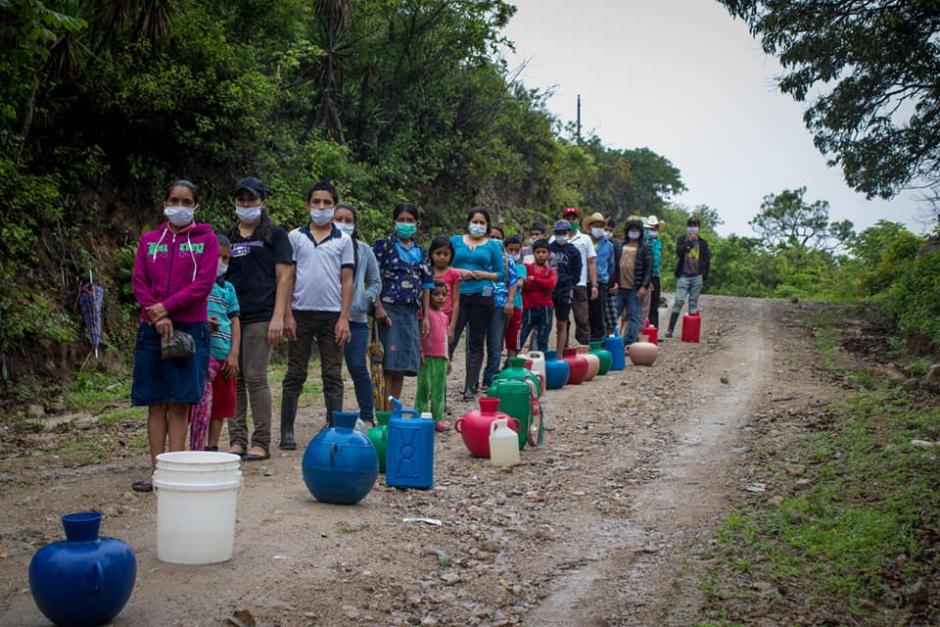
A commodity unfit for individual and corporate profit.
Since 1992, the UN has celebrated World Water Day every 22 March to remember the importance of this essential liquid.
And on 28 July 2010, through Resolution 64/292, the United Nations General Assembly explicitly recognised that "the right to safe drinking water and sanitation is a human right essential for the full enjoyment of life and all human rights".
Thus the Assembly recognised the right of every human being to have access to sufficient, acceptable, safe, affordable and accessible water for domestic and personal use, estimating between 50 and 100 litres of water per person per day. Water free of micro-organisms, chemicals and radiological hazards that pose a danger to human health.
Despite the fact that the supply of fresh water and its quality is essential for life and for all social and economic activities, water is an insufficient commodity in the brutal system of capitalist exploitation.
According to current data of the United Nations Water Agency (UN Water), around 800 million people worldwide lack even basic access to drinking water. At least 2 billion people need to rely on severely contaminated water sources, which spread diarrhoea, cholera, dysentery, typhoid fever and other life-threatening diseases. Some 4.2 billion people (almost 55% of the world's population) lack adequate sanitation.
The daily global child mortality from malnutrition, dehydration and lack of water for hygiene is estimated at more than 7000 children under 5 years of age. The UN estimates that 485,000 people die each year from diarrhoea due to contaminated drinking water; of these deaths, more than 360,000 are children under 5 years of age.
The efforts made by multilateral organisations that address the issue and that propose "water and sanitation for the entire world population by 2030" collide with the interests of big capital, which has not hesitated to commodify this commodity until recently, at the end of last year, it was incorporated into the system of speculation and international economic swindling known as the futures derivatives markets.
The most damaging human activities for water quality are exclusively linked to the capitalist production model which, in most of its versions, exclusively seeks maximum profitability, regardless of the damage it causes to the socio-economic and environmental environment.
In the current health crisis caused by COVID-19, access to water is a priority to counteract the advance of the pandemic and the possible mutations of SARS-CoV-2. The general recommendation is to wash hands regularly as an effective way to stop transmission of the virus. This task becomes very difficult to practice in the face of scarcity and/or contamination, for almost three billion people in the world who have no way to wash their hands against the coronavirus.
Humanists are aware that if the dehumanising direction promoted by Big Capital is not reversed, the growing speculation on territories with water sources will further increase the subjugation of indigenous peoples and communities in different continents. The same will happen with the increasing displacement of populations and the promotion of armed conflicts.
Humanists maintain that it is essential to move in the opposite direction to the international financial system. We need to decommodify nature and its essential components such as water; we urgently need a harmonious relationship with the socio-natural environment.
Science and current resources would make it possible in the very short term to provide drinking water for the entire human race. If this is not happening, it is because the monstrous speculation of big capital is preventing it.
More resources need to be invested in some of the major advances that are currently being developed, such as the development of biodegradable (plant-based) plastics, floating greenhouses, condensed water from fog, desalination and purification of seawater (combined with solar and wind energy).
It is necessary to protect wetlands, promote "conservation agriculture" techniques (preserving soil structure, organic matter and moisture despite decreasing rainfall), promote agro-ecology, and regulate the use of groundwater sources in the face of the growing trend towards privatisation of the subsoil,
Humanists urgently demand a fundamental change in the productive, energy and consumption matrix imposed by the current materialist-anti-humanist-capitalist culture.
International Coordination Team
Federation of Humanist Parties
22/03/2021
